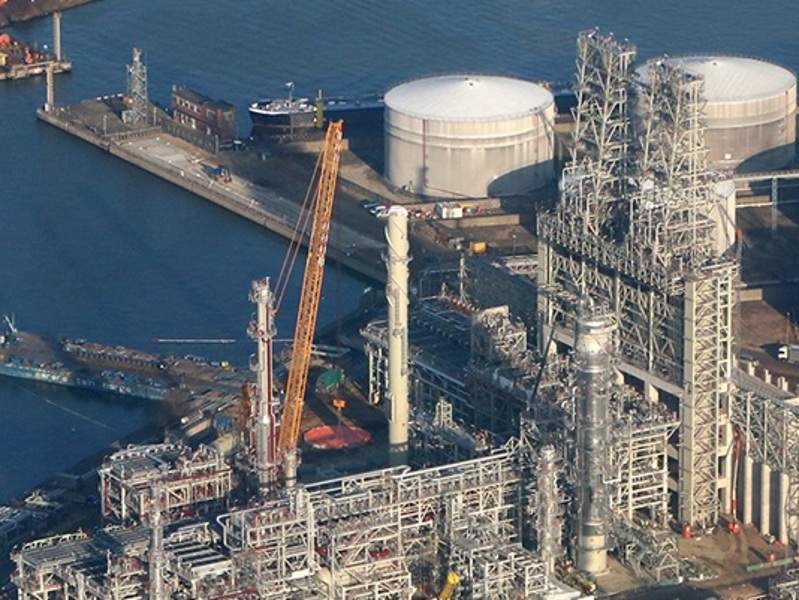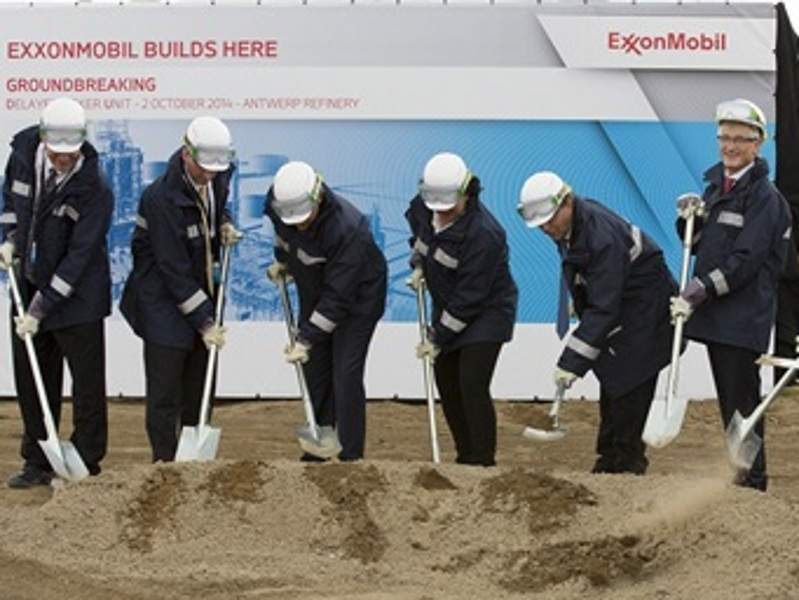ExxonMobil’s Antwerp oil refinery, also known as the Esso Antwerp oil refinery, has been operational since 1953 in the Antwerp-Rotterdam-Amsterdam (ARA) hub near Antwerp port, Belgium.
A major upgradation project titled Antwerp North-West Europe Resid Upgrade (ANWERUP) was completed at the refinery in October 2018, with an estimated investment of $1bn.
The ANWERUP project involved upgrade of the existing refinery facilities and addition of a delayed coker unit to accept heavy crude oil and expand the refinery capacity from 350,000 barrels per day (bpd) to 370,00bpd.
The new unit at the oil refinery is capable of converting heavy, higher-sulfur oils into high-value transportation fuels such as marine gasoil and diesel, complying with the new fuel emission standards to be set by the International Maritime Organization (IMO) from January 2020.
The $1bn ANWERUP project followed the completion of a 130MW co-generation unit in 2008 and a diesel hydrotreater in 2010.
ExxonMobil has invested approximately $2bn for the modernization and expansion of the refinery over the last decade.
ANWERUP project details
ExxonMobil submitted an application for the upgradation of the refinery to the Belgian authorities in 2012 and broke ground on the ANWERUP project in October 2014.
The expansion project included refurbishment of the existing crude oil processing facilities along with the construction of a 50,000bpd new delayed coker unit for the production of marine gasoil and diesel fuel from the high-sulfur residual oil.
Prior to the ANWERUP project, a diesel high-pressure hydrotreater was also installed in the refinery complex in 2010, for the production low-sulfur diesel used in modern diesel engines.
Crude oil supply for the refinery
Antwerp refinery produces diesel fuel, asphalt, naphtha, kerosene, heating oil and petrochemical feedstock for the European crude oil market.
Crude oil for the refinery is supplied by the Rotterdam-Antwerp pipeline system co-owned by ExxonMobil.
The 130km-long pipeline connects the port of Antwerp to the industrial area of Maasvlakte in the port of Rotterdam.
The chemical solvent required for processing the crude oil in the refinery is supplied from ExxonMobil’s performance intermediates plant interconnected with the refinery.
Power supply for the refinery
The power requirement of approximately 130MW for the Antwerp refinery is supplied by the captive co-generation thermal power plant built in 2008.
The steam produced by the power plant is also utilized to heat the mineral oils, which leads to the production of various refined products.
Contractors involved with the Antwerp oil refinery expansion
Global Engineering and Construction Group, a subsidiary of Foster Wheeler, was awarded the engineering, procurement and construction (EPC) contract for the revamp and offsite facilities of the refinery, as part of the ANWERUP project in October 2014.
Foster Wheeler was also awarded the front-end engineering design (FEED) contract for the project in 2012.
Fluor was awarded EPC contract for the new delayed coker unit for the Antwerp refinery in 2014.
The contractual scope included module fabrication, transportation, installation and construction for the delayed coker unit.
The civil engineering contract for the delayed coker unit was awarded to Franki Construct, which also constructed the hydrotreater for the refinery in 2010.
Magion provided the safety and control systems for the delayed coker unit. The steel pipeline segments required for the expansion were provided by PFF Group, a subsidiary of Galperti Group.




